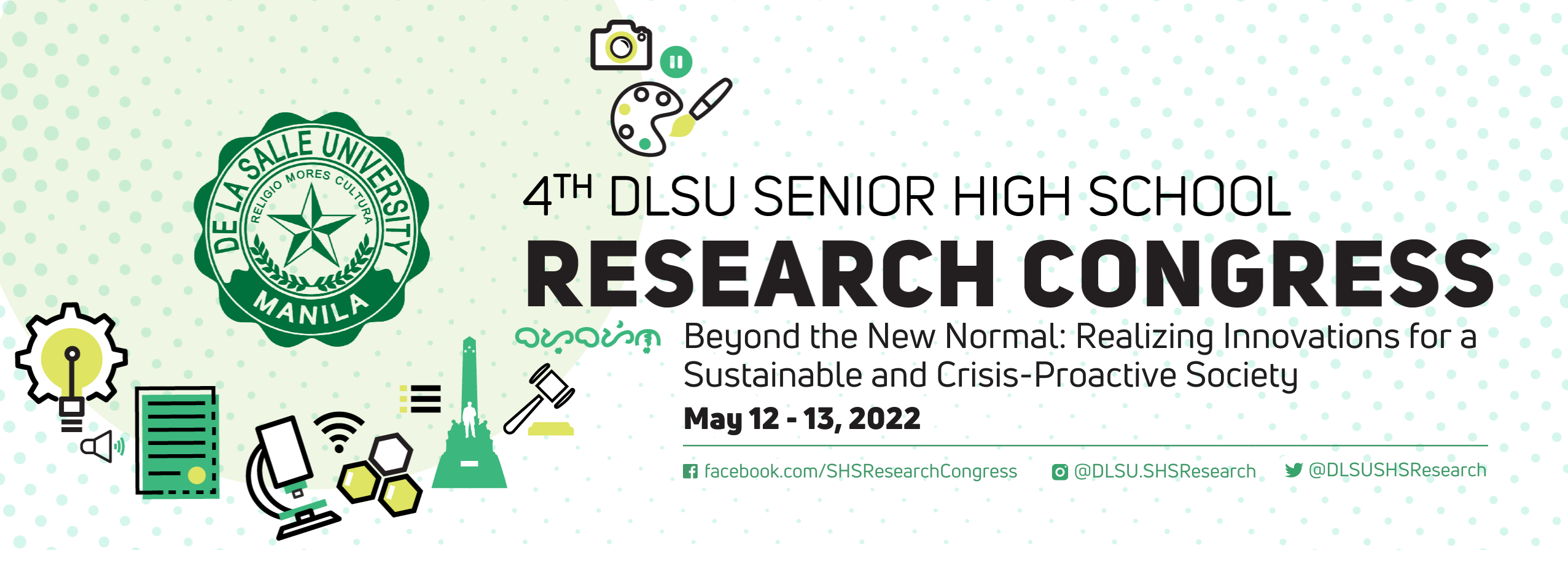Document Types
Business Presentation
Research Theme (for Paper Presentation and Poster Presentation submissions only)
Business Research
Research Advisor (Last Name, First Name, Middle Initial)
Theresa Concepcion A. Gerial
Start Date
13-5-2022 8:00 AM
End Date
13-5-2022 10:00 AM
Abstract/Executive Summary
The fashion retail industry heavily relies on an unsustainable business model of maximizing production, fueling the throwaway culture, regardless of environmental costs. As a compromise, the secondhand fashion industry (ukay-ukay), is an interesting sustainable alternative since it reduces waste and recirculates clothing—two integral grounds for a circular economy (CE). However, studies assessing Filipino consumers’ perception of ukay-ukay as a CE are limited, making their role and a CE’s subsequent potential indeterminate. Thus, this study analyzes Filipino Gen Z consumers’ motivating factors of perceived value, the dynamics of individualism, and investigates their role in the ukay-ukay CE. This quantitative study collected data from (100) Filipino Gen Z consumers using an online questionnaire for each value. Then, a correlational and causal research design consisting of descriptive statistics, simple linear regression, multiple regression analysis, mediation analysis, and moderation analysis was used. Generally, this study found that Filipino Gen Z consumers’ perceived values of second-hand clothing significantly influence their attitudes towards participating in a circular economy, and illustrated in specific categories how and to what degree. These positive experiences, perceived values, and purchase behaviors were found to translate to purchase intention while spreading throughout the community due to word-of-mouth intention. Altogether, this research has verified past empirical findings and contrasted these against the context of Filipino Gen Z consumers. It also concludes that several motivators to purchase second-hand clothing overlap, attracting and retaining consumers into a repeating fashion cycle, validating previous research on the role of consumers in a circular economy.
Keywords
ukay-ukay; circular fashion economy; second hand clothing; consumer behavior; Gen Z
Included in
Filipino Gen Z Consumer Behavior Towards Ukay-Ukay and their Role in a Circular Fashion Economy
The fashion retail industry heavily relies on an unsustainable business model of maximizing production, fueling the throwaway culture, regardless of environmental costs. As a compromise, the secondhand fashion industry (ukay-ukay), is an interesting sustainable alternative since it reduces waste and recirculates clothing—two integral grounds for a circular economy (CE). However, studies assessing Filipino consumers’ perception of ukay-ukay as a CE are limited, making their role and a CE’s subsequent potential indeterminate. Thus, this study analyzes Filipino Gen Z consumers’ motivating factors of perceived value, the dynamics of individualism, and investigates their role in the ukay-ukay CE. This quantitative study collected data from (100) Filipino Gen Z consumers using an online questionnaire for each value. Then, a correlational and causal research design consisting of descriptive statistics, simple linear regression, multiple regression analysis, mediation analysis, and moderation analysis was used. Generally, this study found that Filipino Gen Z consumers’ perceived values of second-hand clothing significantly influence their attitudes towards participating in a circular economy, and illustrated in specific categories how and to what degree. These positive experiences, perceived values, and purchase behaviors were found to translate to purchase intention while spreading throughout the community due to word-of-mouth intention. Altogether, this research has verified past empirical findings and contrasted these against the context of Filipino Gen Z consumers. It also concludes that several motivators to purchase second-hand clothing overlap, attracting and retaining consumers into a repeating fashion cycle, validating previous research on the role of consumers in a circular economy.


